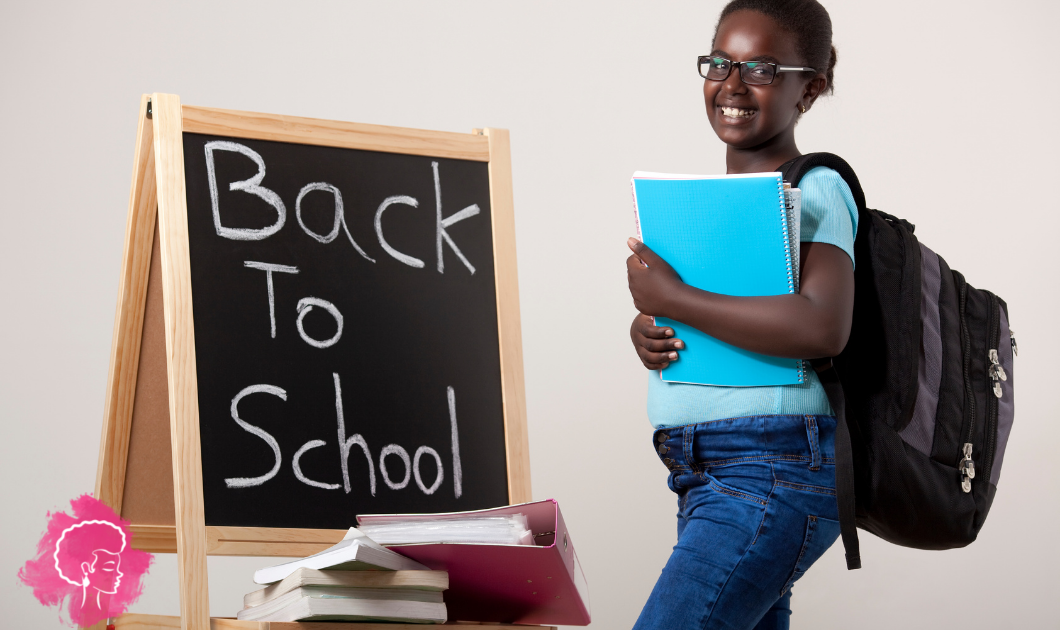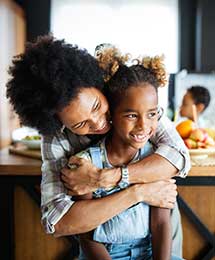How prepared were you for the return back to school post-covid? Whether you’re going from a fully remote to hybrid or even fully in person or a variation, here are some things you can do to help your child transition back to school.
If you are a homeschooling mama, veteran or as a result of the pandemic, have you checked out this subscription list to aid in your schooling?
Plan ahead
Unfortunately, we have some practice with going to school during this pandemic. Hopefully your school has been communicative but if there are any areas needing clarification, don’t hesitate to reach out to the school. You want to equip your child with the knowledge and tools to feel confident going into the school year. It’s a good idea to review the health and safety precautions of the school with your child.
Have open and honest conversations
Talk about fears, nerves and anxiousness, that may come with returning to school and being around more people. On top of what comes with starting a new school year there may be some worries about getting sick. If you are able to anticipate the nerves, you can develop some coping mechanisms when they arise.
Listen to concerns, validate, problem solve. Remember this is a conversation and not a lecture. You want your child to engage in the discussion so you can hear their concerns, offer support and reach solutions that work. Focus on things going well and what they’re looking forward to with the upcoming school year. As well as focusing on what you can control. Being rational can be a big help when your child feels powerless against anxiety.

Build a predictable routine
This goes into the category of what you can control. Routines and consistency help to build feelings of safety and security. Creating a predictable schedule of bed and meal times is a good start. Even with a routine, it doesn’t have to be boring and mundane. Keep a calendar for daily routines. Planning before and after school shared activities to do with your child can aid in those secure feelings. These activities could include making breakfast together, reading, packing lunch, doing a craft and/ or going to the park.
Don’t expect things to change overnight. Remember to give grace as you and your child adapt to the transition. Stay flexible and adaptable.
Pay attention to our child’s mood and behaviors. If you notice they are withdrawn or seem to have an attitude, meet them with compassion, warmth and calm. Model calm behavior, instead of reacting yourself. Realistically as parents we will have feelings of uncertainty and worry. However, it’s important we try to model a calm and confident demeanor. It can do wonders for your mental health and well-being. In turn, it gives your child a good example to mimic and boost their mental as well in their return back to school post-covid.
You can check out what the CDC recommends for your transition here.
Maintain social connections
Having a solid social support circle can help when feelings of being overwhelmed creep in. So, if you are feeling disconnected, take the time to reconnect. It doesn’t need to be in person or a large party. Reach out, virtually, to a select few people who will listen and support you. Also, reach out to those who can help take your mind off your worries. We all need to laugh and relax as a reset from time to time.
Be transparent about ground rules
Don’t assume others know what you are thinking, especially children. Also, other households may have different rules and boundaries. It’s important to go over what is acceptable for your household with your child. Practice setting boundaries, even when it’s uncomfortable. Be clear and concise, throw out some scenarios and open up some dialogue.
Take breaks when you need them
You can’t pour from an empty cup. It’s okay to take a step back, take deep breaths and some time before responding. After you have calmed down, explain to your child how you felt and that you needed a moment to relax yourself before helping them. Make sure to assure them it’s not their fault. And if you do slip and yell at them before being able to take the steps needed to calm yourself first, don’t beat yourself up. You can explain to your child how you were feeling and apologize for your reaction.
Don’t hesitate to seek help
Just because this is a very stressful time for most, doesn’t mean you don’t need help. If you are struggling, find a mental health professional. And today it is more convenient than ever with virtual and telehealth options. Also, proactively check in about mental health with your child. They may also benefit from professional help. This is a stressful time for them as well. So, as we are in this back to school post-covid season, check for what resources may have become available as well.













